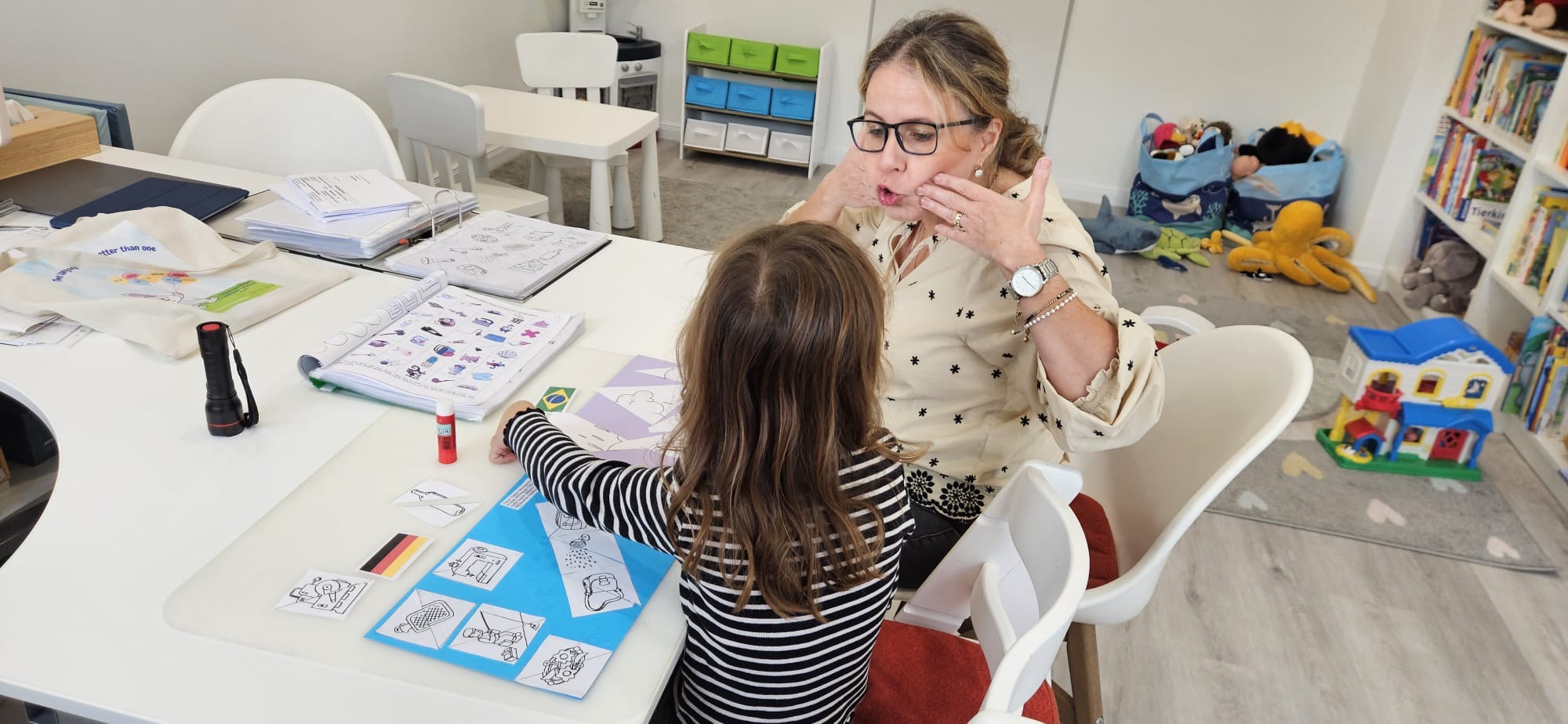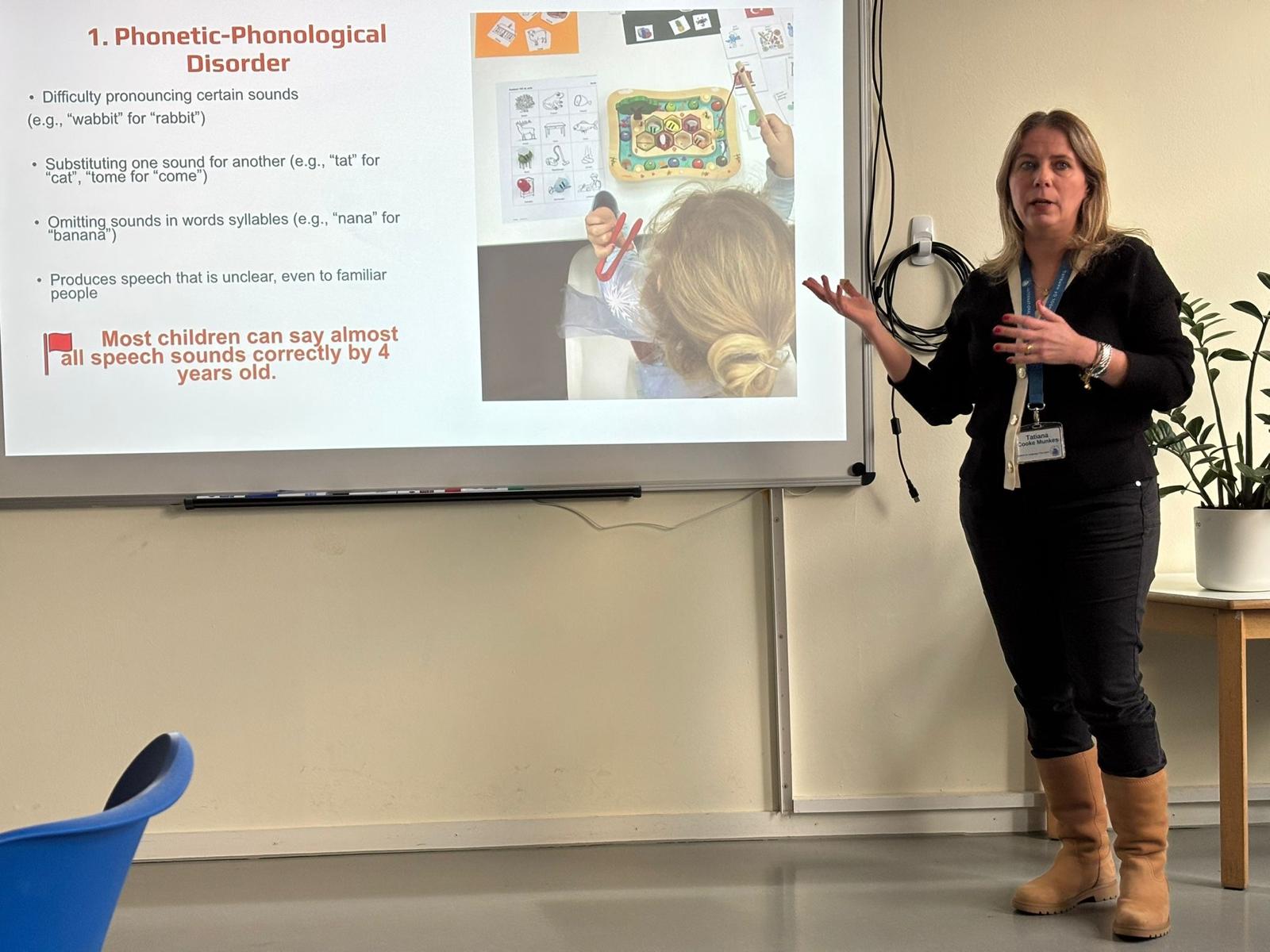
Assessment
Differentiated and specialized assessment for bilingual and multilingual patients, considering unique cultural and linguistic aspects.
How is speech-language assessment performed in general?
The assessment will be performed through standardized tests and observations of all Speech-Language areas (vocabulary, grammar, reading, writing, speech, comprehension and fluency), if possible in all languages/idioms the patient communicates in.
Specific tests to evaluate swallowing and functionality of orofacial organs will also be performed when necessary.
How does bilingual/multilingual assessment differ from monolingual assessments?
Bilingual or multilingual assessment is a differentiated assessment, as it will mostly not include standardized tests, which can negatively interfere with clinical interpretations of each clinical condition.
Bilingual and multilingual children should not be assessed with the same tests used for monolingual children.
Assessment will be performed through precise analysis of an entire bilingual and multilingual developmental context. Cultural factors such as origin of exposed languages and family aspects will be valued.
Important aspects in assessment
Situational aspects will be extremely important to reach a safer diagnosis of speech and language disorders in each patient:
- Date of first contact with spoken languages
- Daily exposure to different languages
- Means of exposure to various languages
- Dominant language
- Complete analysis of how languages are used at school, at home, and in each patient's environment



